
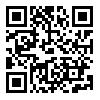
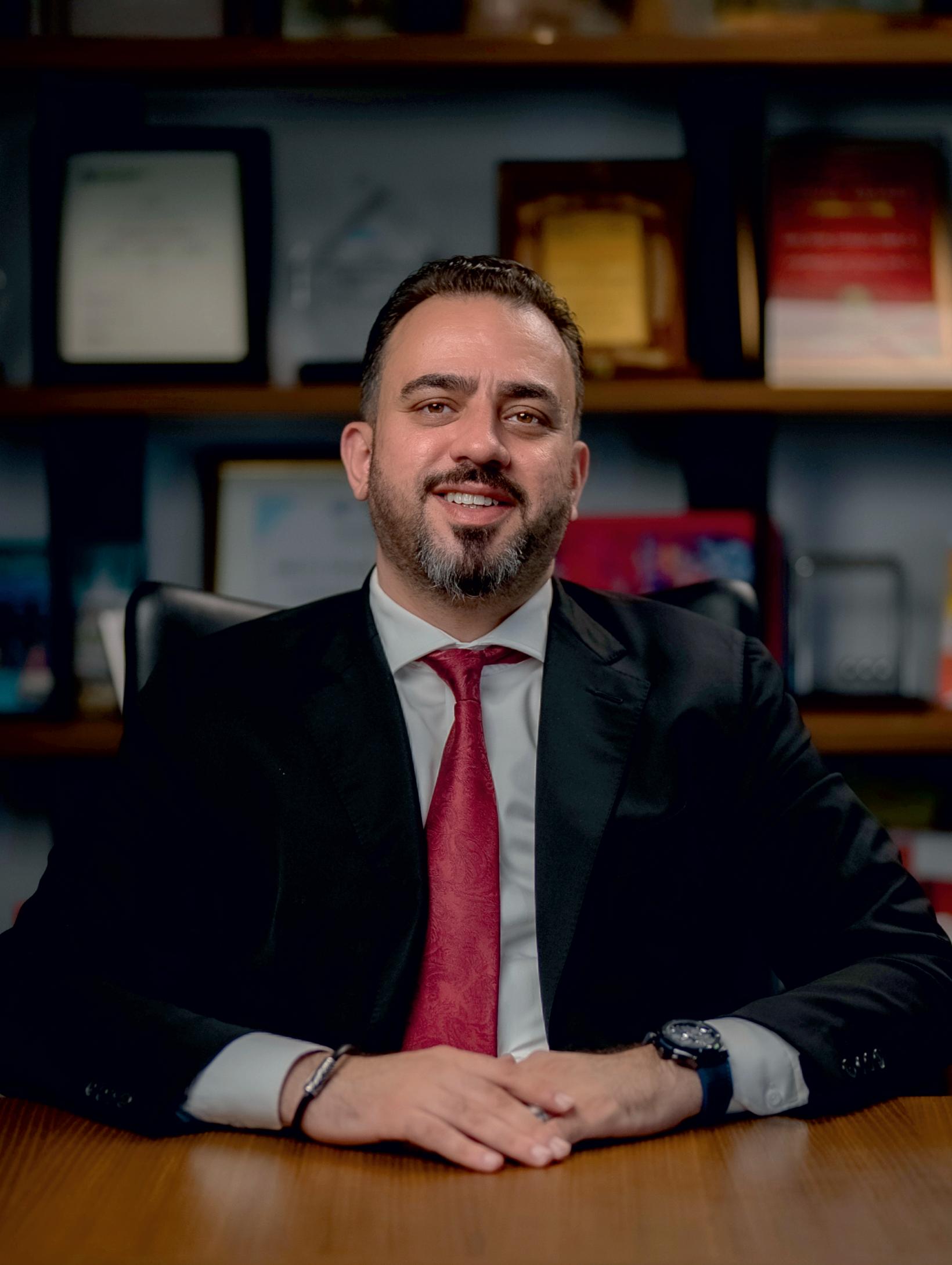
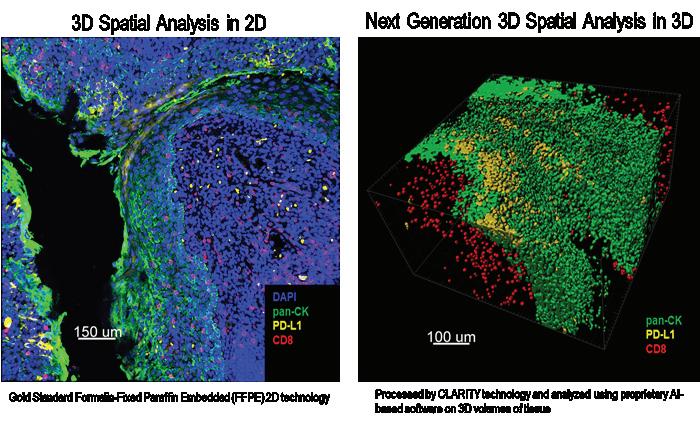
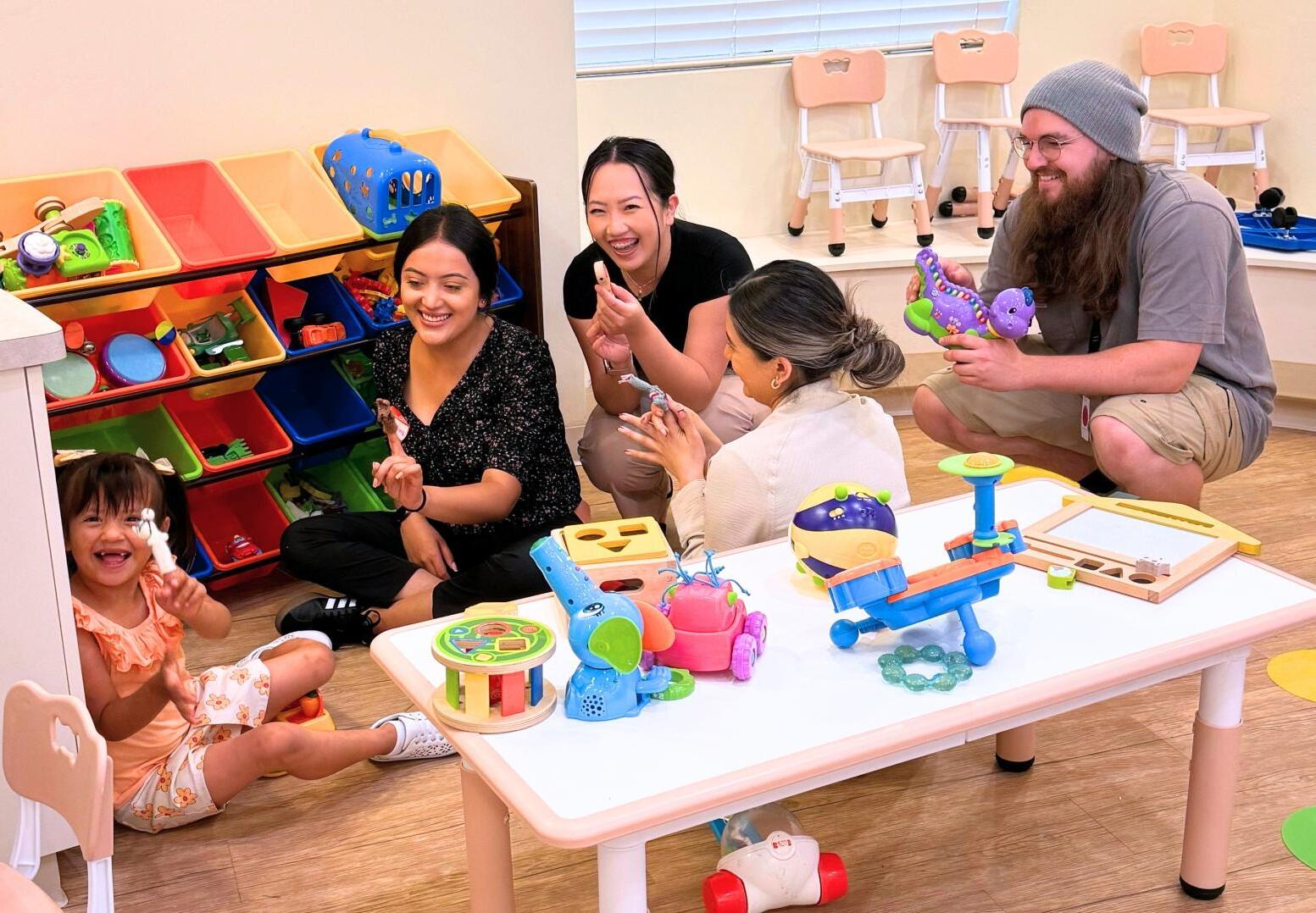











Leadership models define industries, but with healthcare, they weigh on human lives. Successful healthcare leaders combine strategic vision with compassion, working their way through the intricate systems to provide care that changes communities. Mert Efe, Group CEO of Delta Trade CompanySağlıkA.Ş.,isonesuchtrailblazer,characterizedbyanunusual combination of innovation, strength, and empathy that makes him exceptionalinthischallengingenvironment.
Efe’s path is not one of title alone but of immersion in the depths of healthcare.Withabackgroundininformaticsanddigitalmarketing,hehas learned the science of converting challenges into opportunities. From outfitting hospitals with cutting-edge technology to encouraging medical tourism,Efe’svisionfocusesonhumanhealthaboveall.
WhatdistinguishesEfeishiscapacitytonavigateambiguity—whetheritis economic turbulence or logistics challenges—while keeping his teams engaged in sustainable impact. His leadership on adaptability inspires diverse professionals to innovate and bring solutions that speak to the community WhetheritisimplementingAI-drivendiagnosticsorestablishingpartnershipsforlong-termsuccess,EfekeepsDeltaTradeabeaconof trustedhealthcareexcellence.
This issue titled ‘Mert EFE: ATrailblazing Leader Making Waves in Healthcare Industry – 2025’honors his dedication to affordable, quality careandhisquestforinnovation.Hislegacyisareminderthatleadershipis a matter of making a lasting difference, no matter what obstacles are encountered.Weaskyoutoconsiderhowvision,courage,andempathycan driveabetterfutureforeveryoneasyouexplorethisissue.
Haveaninsightfulread!








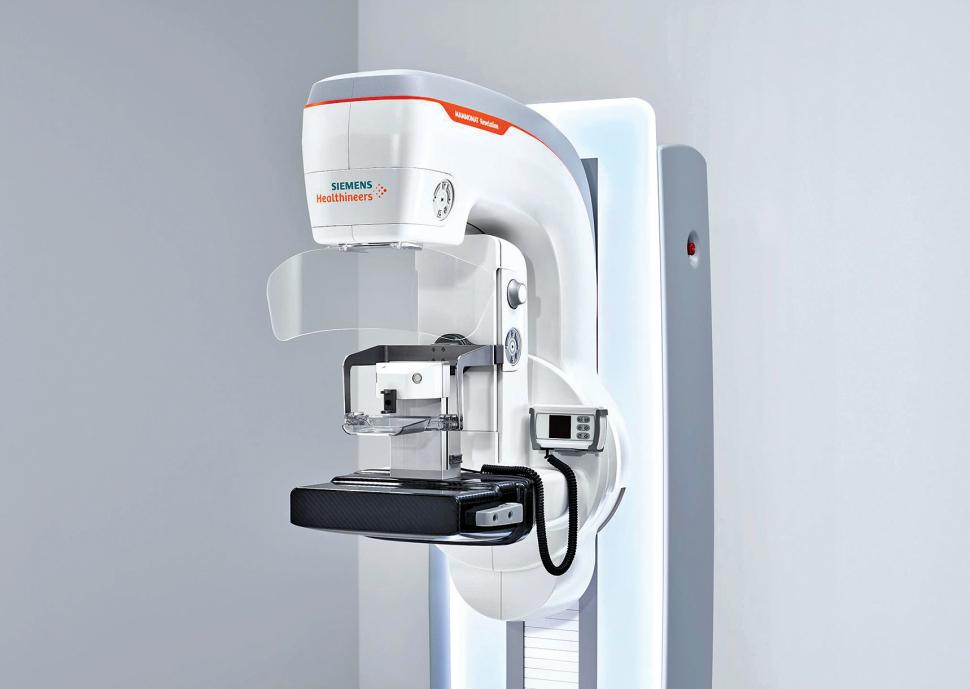

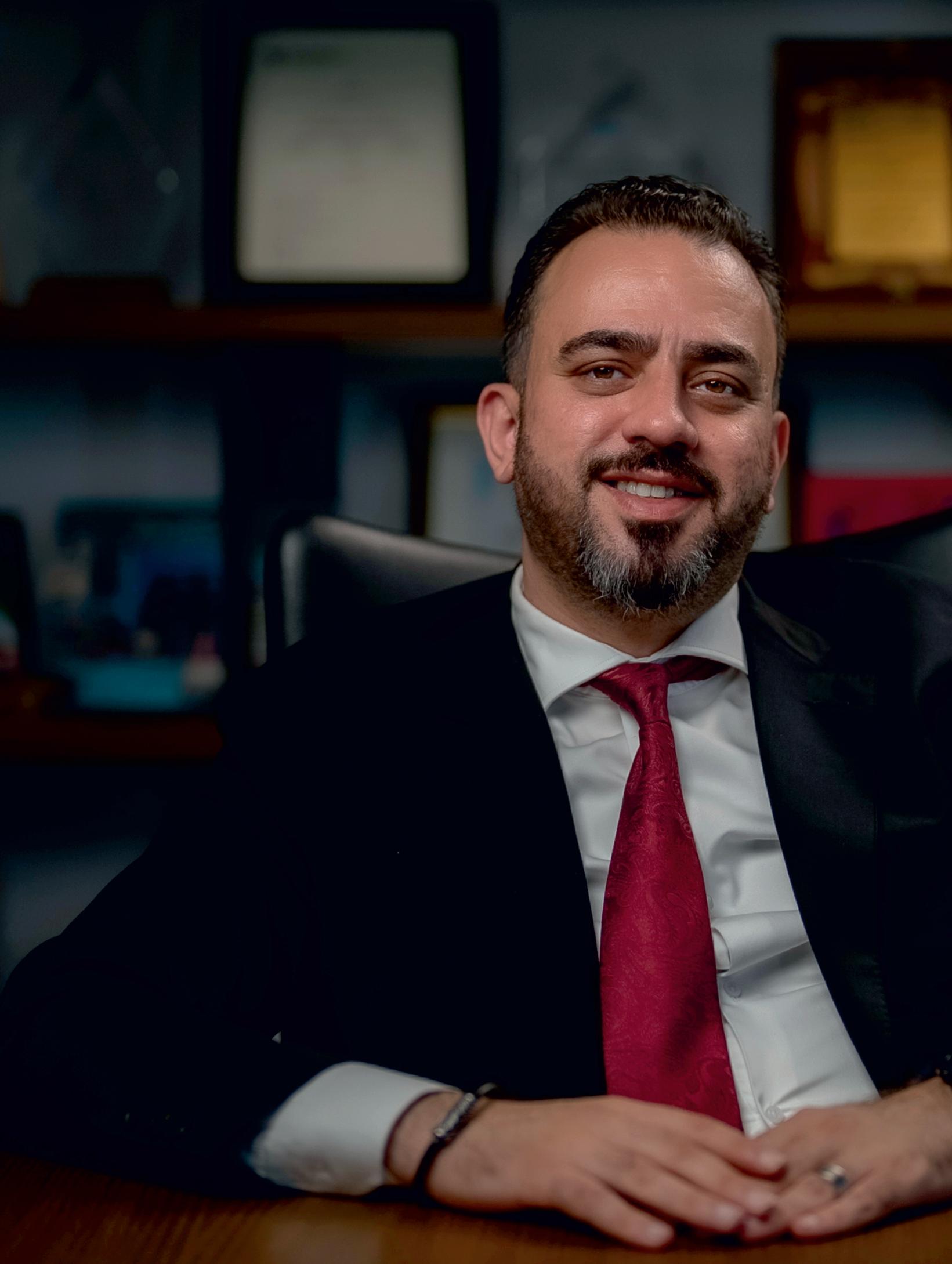
The Strategist Transforming Healthcare Against All Odds
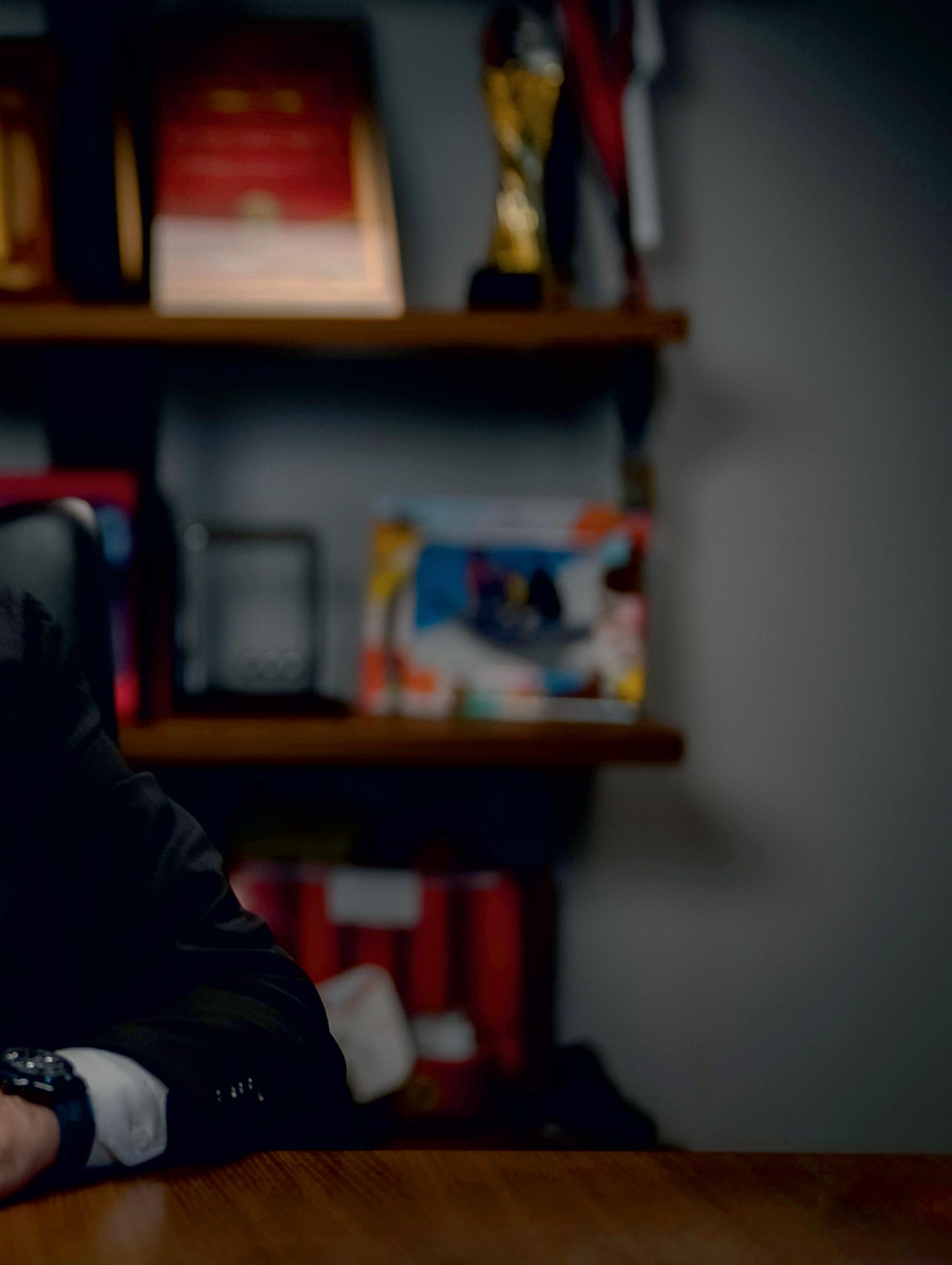
Group CEO
Delta Trade Company
Saglik A.S
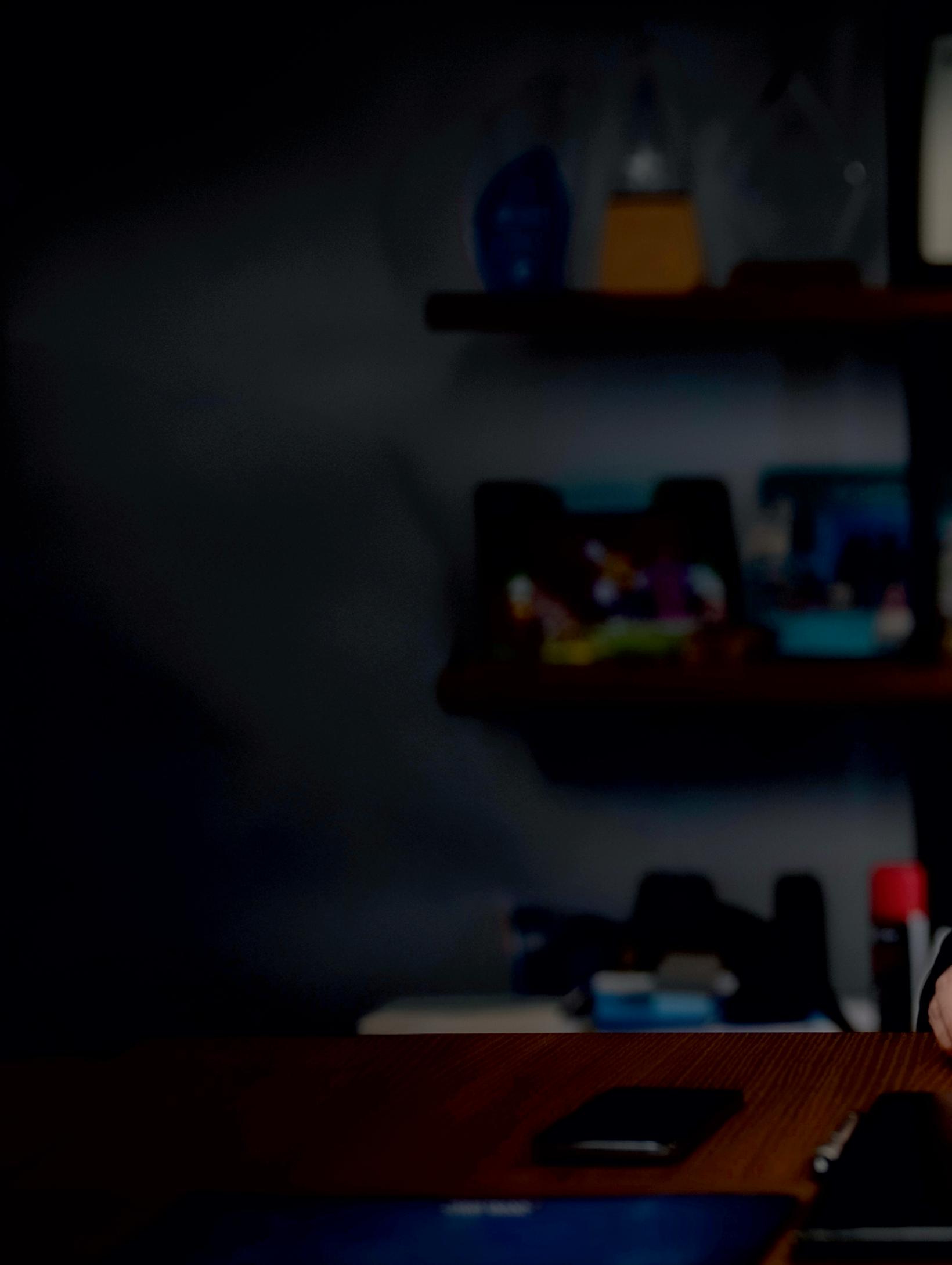
Trueleadershipshowshowyouhandlecomplexity,not just when things are easy, but especially when the stakesarehigh.MertEfeembodiesthisineverystep ofhisjourney
He didn’t just take on a title; he immersed himself in every layer of the healthcare business, learning the ropes from the ground up. This practical knowledge provided him with the vision and strength to propel Delta Trade Company Sağlık A.Ş.throughoneofthemostdemandingmarketplacesinthe world.
The difference with Mert lies in that he sees opportunity where others can see risk: heading the company in areas marked by political uncertainty, economic changes, and logisticalchallenges.HisleadershipchangedDeltaTradeinto a trusted healthcare companion within the Middle East, Africa, and Europe, providing innovation and solutions peopleneedmosttoandwithintheircommunities.
TheformulathatMertemploysisperhapstheoldestoneinthe book,yetitisstilleffective:beflexible,encouragehisteams and never lose the mission in sight, improve access and qualityinhealthcare.WhetherintroducingAI-assistedhealth facilities or establishing long-term collaborations, he is helpingtoleveragehisexperienceintheindustrywiththeidea ofcreatinglong-term,sustainabledifferences.
This is leadership that goes beyond headlines—focused on results, relationships, and steady progress. It’s the kind of leadership that’s shaping the future of healthcare in some of theworld’smostcomplexenvironments.
Let’s explore how Mert is driving innovation and trust in healthcareacrosssomeoftheworld’stoughestmarkets!

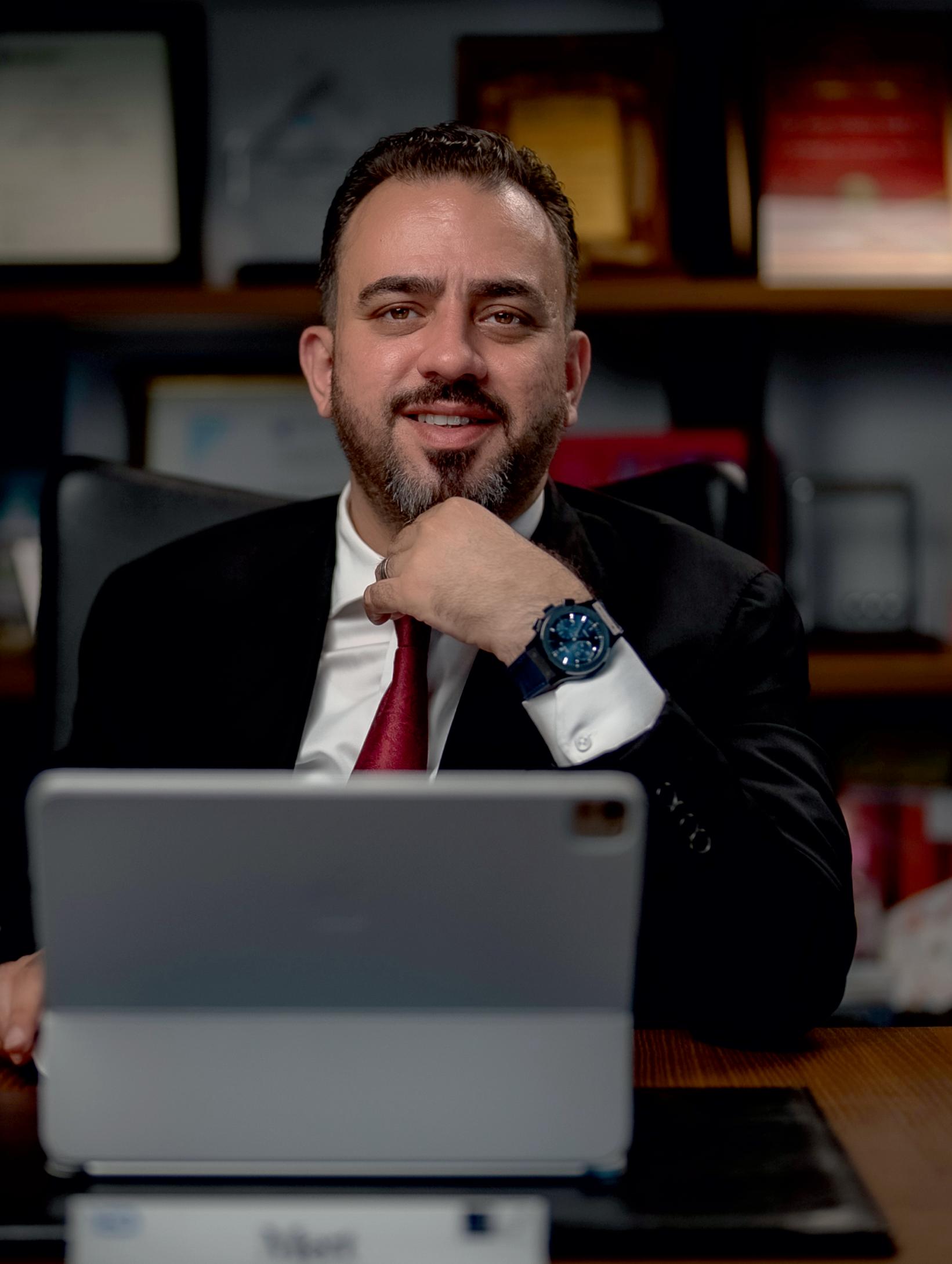
Our company has been in operation for 30 years, serving public and private healthcare industries through various different business models. The company strategy is continuously evolving to help us move forward and ensure our place in the industry stands powerful. Our core business models consist of developing turn-key projects (hospitals, clinics, diagnostic and CSSD centers),partneringwithgovernmentsandprivateinvestorsfortheirPPPandBOTprojects,establishing ourownhealthcarefacilitiesandprovidingafter-salesservices.
Wehavecompletedaround250projectsgloballyasof2025.Ourprojectsteamscontinuetoworkwithinvestors,project developers and construction companies to create step by step execution plans, prepare proposals according to local regulationsandcustoms,domedicalandinfrastructuralplanningandstrategizewiththeclientstoensuretheirproject’s success.
PPP&BOTProjects
Thelast15yearsofouroperationsincludemanypublic-privatepartnershipandbuild-operatetransfertypediagnostic, sterilization,physicaltherapy,oncologyanddialysiscenterprojects.Ourexperienceasanend-userhelpsusunderstand howthesefacilitiesfunction,sowehavehadgreatsuccessinthistypeofbusinessmodel.
Investments
Wedidourowninvestmentsinhealthcareasend-userstohaveabetterunderstandingofthemarketandmakesureweare onthesamepageastheentitiesweserve.
After-salesServices.
We work with 2000 manufacturers globally. Our staff are certified and accredited by the manufacturers themselvesandareabletorespondtoasignificantrangeofservicerequests.Havingalargeserviceteamwith many local branches is the only way to ensure quick response and help sustain the operations of our partneredhospitalsandclinics.
Asof2025,DeltaTradeCompany’sheadquartersarelocatedinDüsseldorf,Germanyand Istanbul,Turkiye. Our domestic operation inTurkiye operates with 13 branches. Our second biggest entity, Iraq, has 5 branches. Lastly, our UAE, Oman and Qatar branchesservetheGCCareawith3officesrespectively.
We also have project-based offices in the continent in Africa, mostly focusedonWestAfricathroughEquatorialGuineaandSouthAfrica.
Can you briefly walk us through your professional journey and what led you to become the Group CEO of DeltaTradeCompanySaglikA.S?
My journey in DeltaTrade Company started 14 years ago. I tooktheroleofvariousrolesinthecompanystartingfroman IT Manager, Middle East Customer Relations Manager, MENA Director, EMEA Director and finally the Group CEO.
However, my education background is different than the currentworkwedoinDeltaTradeCompany Themainfactor ofmygrowthismyabilitytothriveinnormallyunsustainable areas,myadaptability,risk&crisismanagementskills.
What personal values or principles have consistently guidedyourleadershipstyleinthehealthcareindustry?
Integrity,agilityandvisionarethecoreprinciplesthatguide myleadershipstyle.Ibelieveintransparentcommunication. Empowering teams to think beyond operational tasks and fostering a culture where innovation meets compassion. My leadership is how-to deal with different cultures and grant tasks to respective teams according to their skill-sets. My leadership is anchored in the idea that every decision must ultimately serve patient welfare and societal health improvements.
How would you describe the core mission and vision of DeltaTradeCompanySaglikA.S,andhowdoyouensure theyarereflectedinthecompany’soperations?
Our core missions comprise of tailoring custom-made solutions and business models for our significant variety of customers, delivering patient/end-user focused quality and making higher level healthcare systems available for underdevelopedcountries.
Ourvisionistobecomethemosttrustedhealthcaresolutions partner across Middle East, Africa and Europe. We ensure these values are reflected in our operations by embedding quality benchmarks, building strong partnerships and investingcontinuouslyinhealthcare,employeedevelopment andcustomer-centricity
The healthcare industry is evolving rapidly. What key trends do you believe are currently shaping its future, particularlyinTürkiyeandglobally?
The biggest trends in our industry are AI and digital transformations AI already entered the market via implementationsindiagnostics,inventorymanagement,
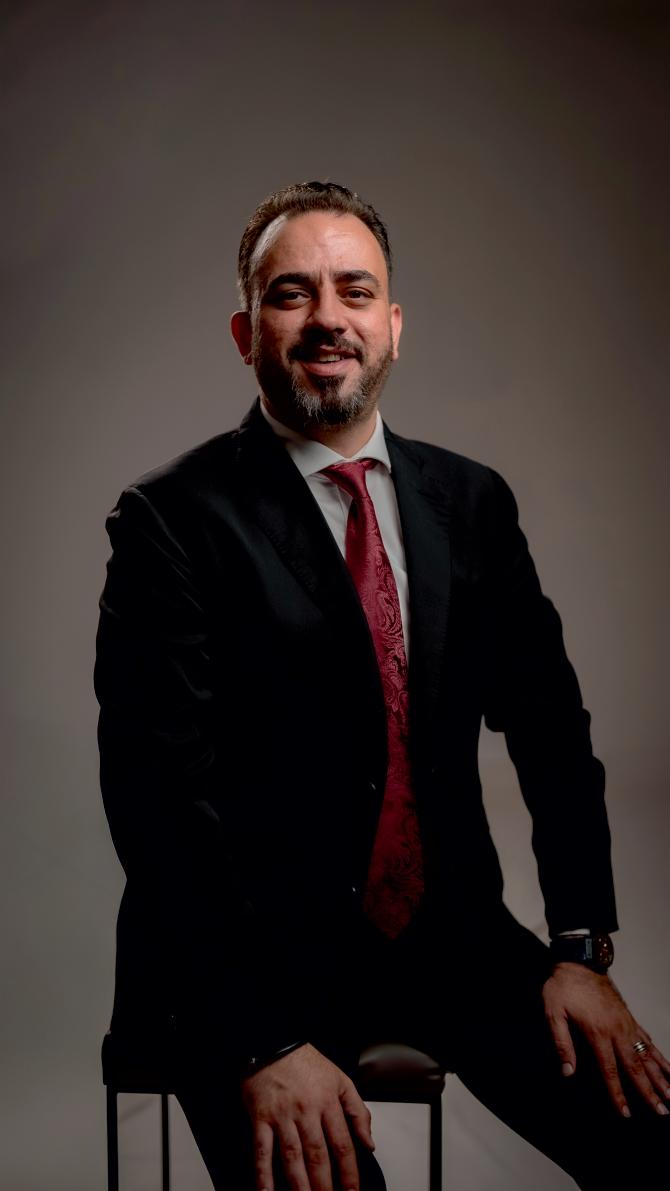
“Our team consists of members from many different cultures and backgrounds, so it is crucial for every member to respect others, learn and adapt to local cultures.”

logistics and providing more sustainable ways of customerservice.Accordingtothesetrends,werecentlylaunchedour projectinBaghdad/IraqforanAI-supporteddental&beauty center ThisisthefirstprojectthatimplementedAI-supported dentalinstrumentsinMiddleEast.
WhatuniquechallengeshasDeltaTradeCompanyfaced inrecentyears,andhowdidyourleadershiphelpnavigate them?
The biggest challenges our company faces are the political instabilityintheareasthatwefocuson.Thisinstabilitycauses a big range of issues from logistics delays, challenging customs policies, volatile government budgets and lack of regulation.
Wesolvethisproblembyalwayshavingdifferentmethodsof freight and forwarders available at all times. Our partners in supply,logisticsandservicealsohavetoemploytheflexible mindset that we always do to continue being successful in thesechallengingareas.
Rap�dands�gn�ficantcurrencyfluctuat�onsacrossourglobal brancheshavepushedustosharpenourovers�ghtcapab�l�t�es and �mplement effect�ve countermeasures for var�ous scenar�os.Wh�lesuchvolat�l�tymakes�tchalleng�ngtocraft susta�nable proposals and long-term quotat�ons, our deep market understand�ng and h�stor�cal �ns�ght have enabled us tooperatew�thout�ncurr�nglosses.
Our focused-markets are under the influence of powerful lobbies which prevent new companies from entering the marketandthriving.Weexecuteddifferentstrategiestobreak thesebarriersandincreaseourmarketshareincrementally.
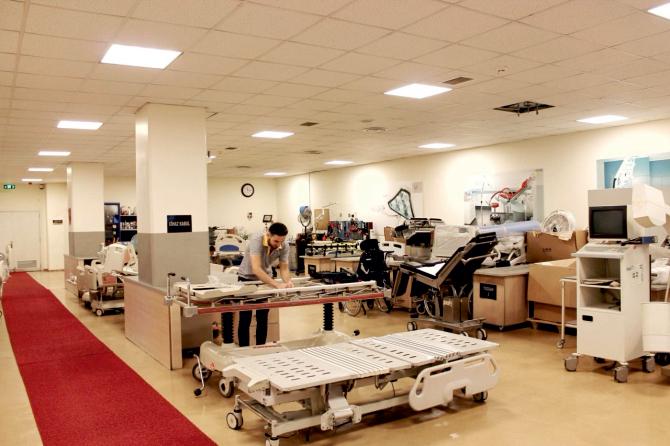
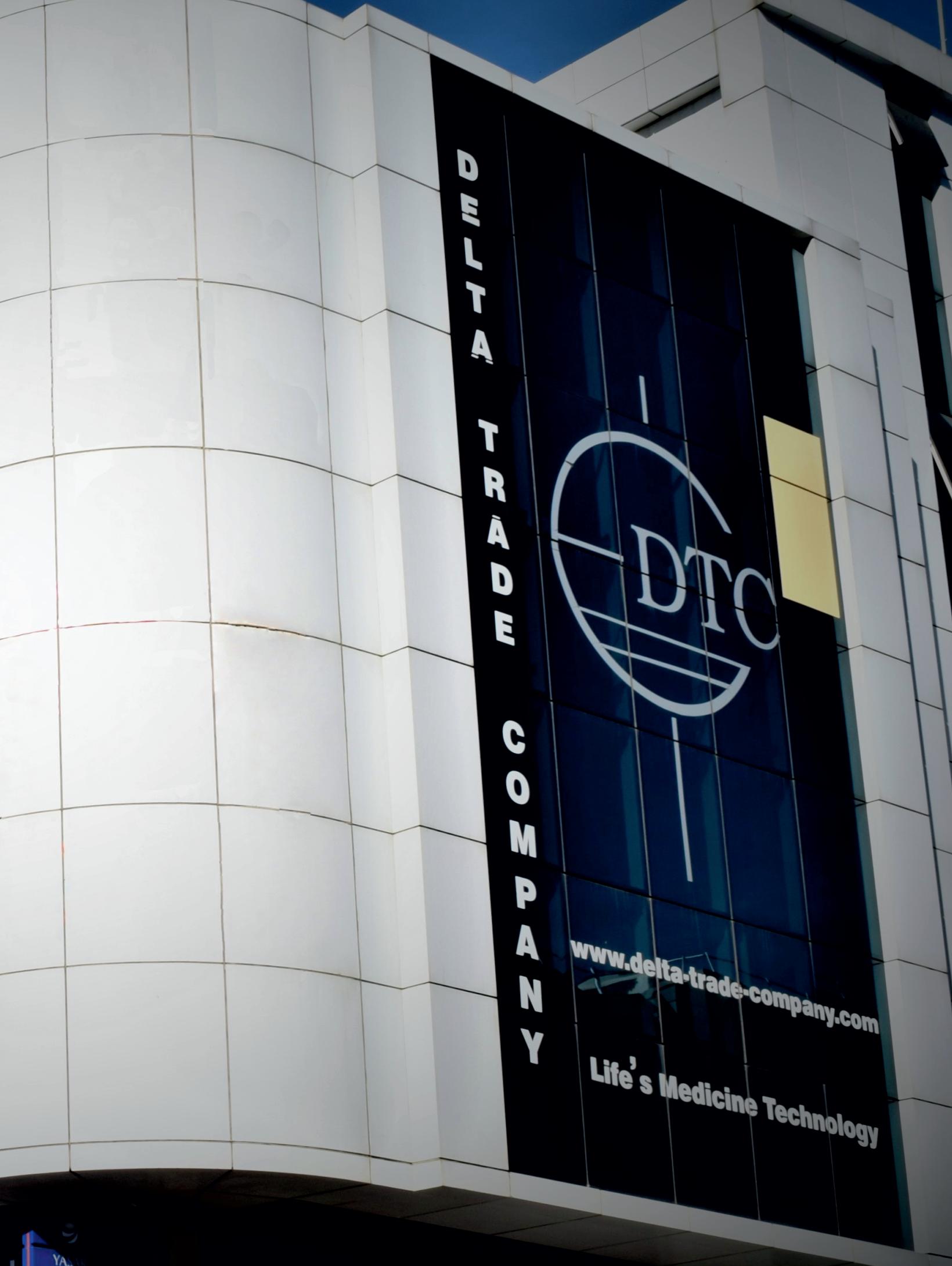
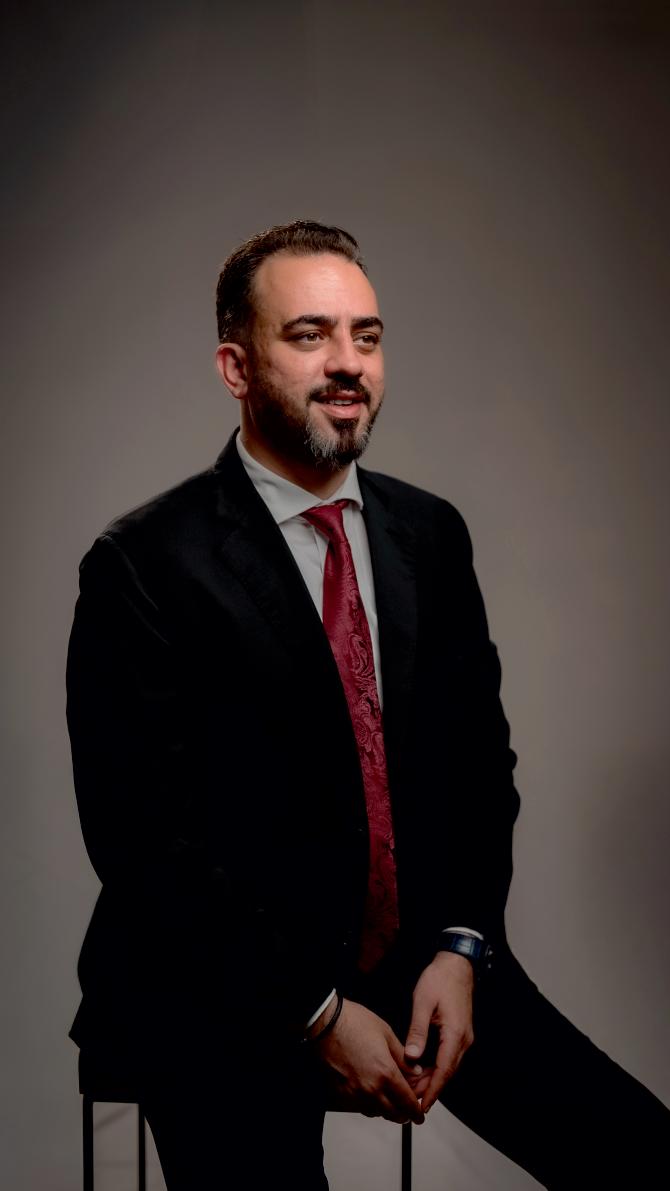
“We solve political instability challenges by always having different methods of freight and forwarders available at all times.”
Innovation is a driving force in healthcare. How is Delta TradeCompanyembracingtechnologyandinnovationto stayahead?
AtDeltaTradeCompany,weactivelyadoptdigitalsolutions to improve procurement, inventory management and customer engagement. We are integrating AI-based data analytics to forecast demands and enhance operational precision. Furthermore, we partner with technology firms to bring advanced diagnostic and therapeutic solutions to the marketsweserve.
How do you balance operational efficiency with compassionate care in such a sensitive and missioncriticalindustry?
Ourindustryvaluesend-usercareandregulationsmorethan profit and chasing opportunities. In order for companies to keep their operational efficiency, they have to make these valuestheirmainfocusandbuildtheirvisionaroundtheidea thatweservepeopleandtheirhealthisourendgoal.
Whatleadershipqualitiesdoyoubelieveareessentialfor building resilient and high-performing teams in healthcare?
• AgilityandAdaptability:Embracingchangeproactively and adjusting strategies swiftly in dynamic environments.
• Empowerment and Delegation: I trust my team by delegation authority appropriately which develops their skillsanddrivesownership.
• Resilience under Pressure: Maintaining focus, composure and positive influence during crisis or highpressuresituations.Wewereoperationalduringwar-time in some of our foreign branches, so resilience and patienceisanimportantasset.
• InclusivityandCulturalIntelligence:Respectingdiverse perspectives, valuing inclusivity and understanding different cultural contexts in global operations. We are operating in 20 countries globally so we must value diversityandopen-mindednesswithinourteams.
• Innovative Mindset: Encouraging creativity within teams and exploring new technologies or models to improve service delivery. The healthcare industry is growing exponentially every year so we have to be actively tracking the trends and making sure our managementsystemsareup-todate.
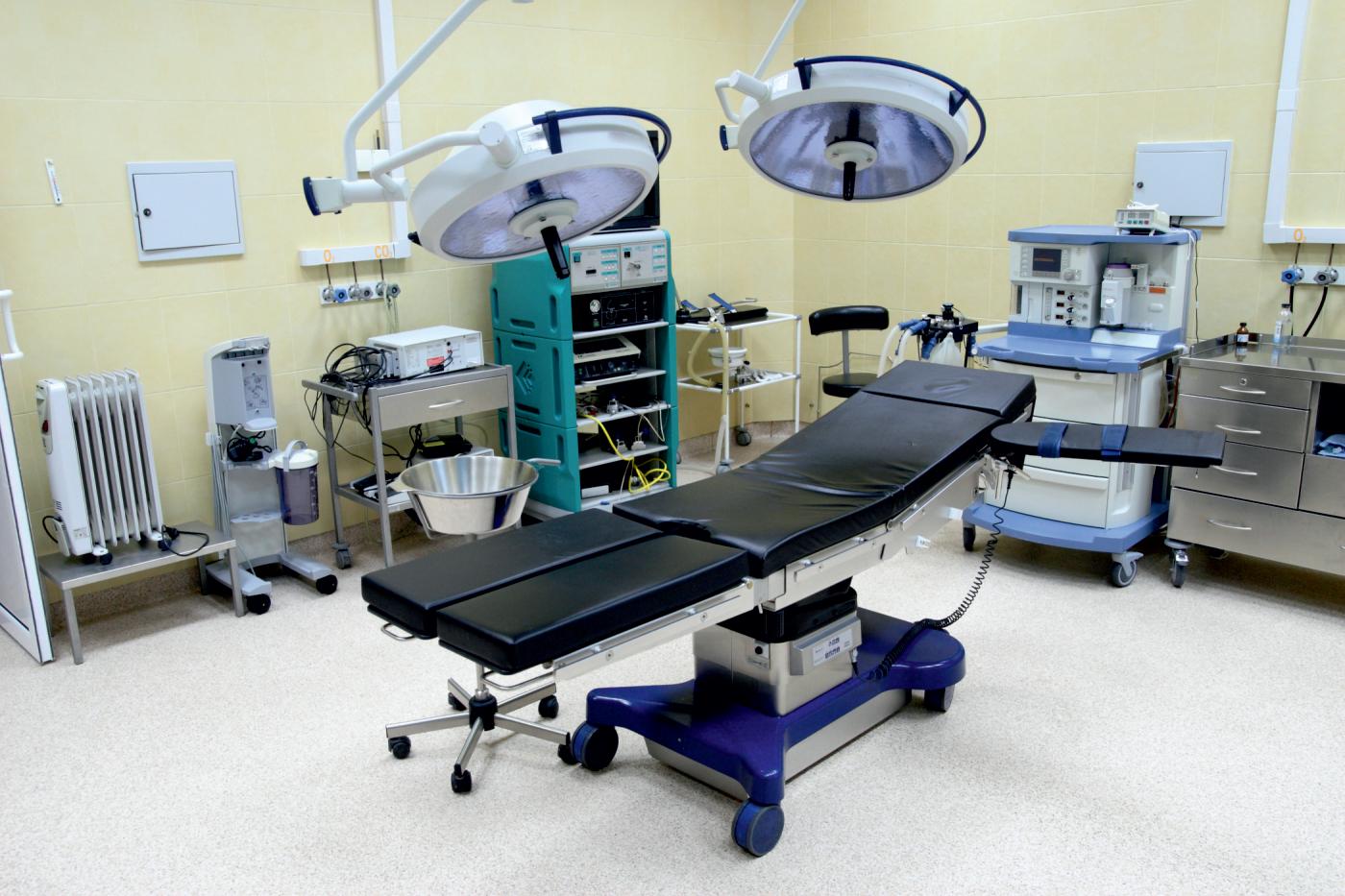
• Visionary Thinking: The ability to set a clear direction andlong-termgoalswhileinspiringotherstoalignwith thecompany’svision.
Howdoyounurturetalentwithinyourorganization,and what role does culture play in Delta Trade Company’s success?
InsideDeltaTradeCompany’sstructure,wehavecontinuous learning and development, mentorship and coaching, recognition and reward, career progression opportunities, performance feedback and development plans. All of these systems enable us to nurture talent and maximize employee satisfactionandprofessionalgrowth.
Our team consists of members from many different cultures andbackgroundssoitiscrucialforeverymemberofourteam to be in synch with peers, respect others, learn and adapt to local cultures to make sure our operations run smoothly Everyculturehasdifferentwaysofoperating,communicating anddoingbusinesssowehavetoknowtheircorevaluesand tailoroursystemsaroundthem.
Can you share a milestone or achievement during your tenurethatyou’reparticularlyproudof?
Mybiggestmilestonesduringmytenurehavebeenopeninga newdepartmentinourcompanyforsupplyingIVDproducts, operating new hybrid PPP projects in diagnostics and sterilization,developingnewinvestmentsindentaltreatment (AI Dental Center in Baghdad) and establishing aesthetics centersinMiddleEast.So,bytheseachievementsourteamis abletounderstandbusinessbetterthanthepastbecausenow we are able to operate as both the supplier and the end-user This increases our experience in choosing the best products with best quality in affordable prices as well as we raise the companyrevenuefrom7-digitsto8-digitsduringthisperiod.
What is yourlong-term vision forDeltaTrade Company SaglikA.Soverthenext5to10years?
Our vision for the next 5 years is penetrating the hospital managementsystemmarket.Initiatingvaluablepartnerships with manufacturers and end-users in healthcare as well as boostingourrevenuefrom8to9-digits.
“In order to achieve agile leadership, you have to improve your skills by executive education and operate in proximity with on-site teams.”
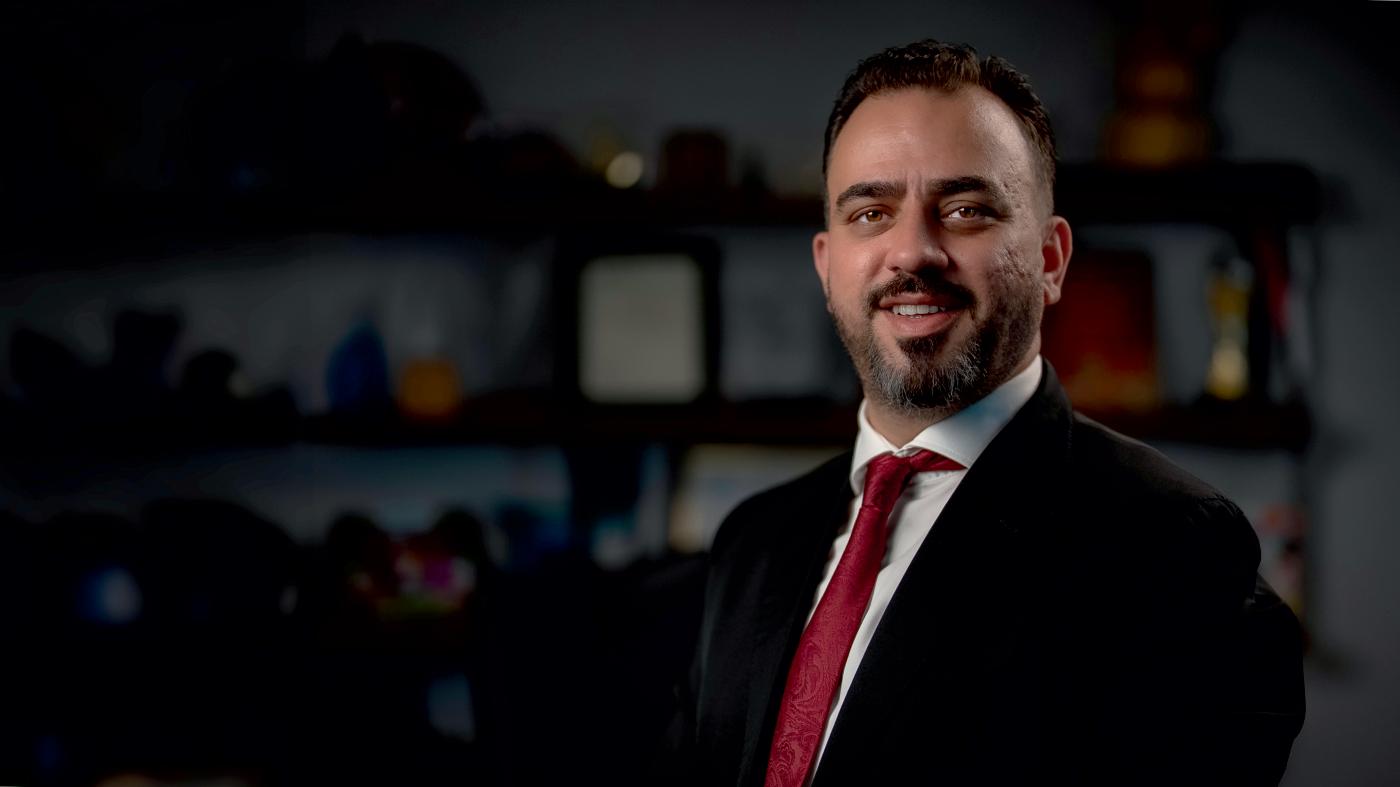
Howdoesyourcompanycontributetobroaderhealthcare access,publichealth,orcommunitywellnessinitiativesin Türkiyeorinternationally?
Delta Trade Company regularly donates equipment and consumables to public projects in every country that we operatein.Wehadabigroletoplayduringthepandemicby increasingthetestingcapacityofpublichospitallaboratories, rehabilitation of dysfunctional hospitals and training local personnelontestingandmaintenanceprocedures.
We chose our partners carefully in IVD and medical device manufacturing to ensure that our projects are equipped with thehighestqualityequipmentandwehavesystemsinplaceto ensure the operational efficiency of these facilities through ourserviceteamstomakesuretheseprojectsaresustainable andcontinuetoservethepublic.
What advice would you offer to upcoming leaders and entrepreneursaimingtomakeanimpactinthehealthcare sector?
Actually,nowadaysthebusinessstructureneedsagileleaders. In order to achieve that, you have to improve your skills by executiveeducationandtooperateinproximitywithon-site teams. Leaders should delegate authority to enable growth within the company and increase incentives within their teams.Thiscanonlybesuccessfulthroughbuildingtrustand transparentcommunicationbetweenallcolleagues.
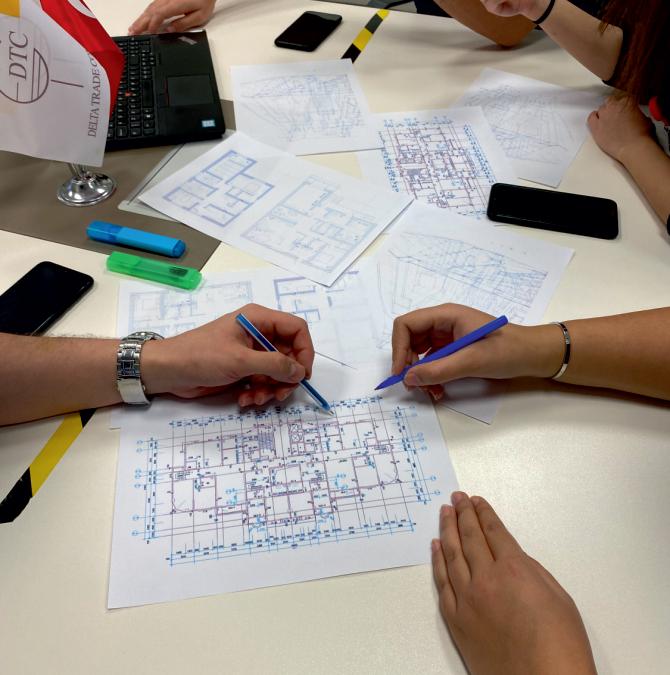
If you could change one thing about the healthcare industrytoday,whatwoulditbe—andwhy?
Our recommendation for the medical market is rather than beingdispersed,themarketshouldbeconsolidated/clustered tofewerpartiestoensurehealthycompetition.Ithink,within 5to10years,wewillobservebigconsolidationsinhealthcare marketwithpowerfulmanufacturersandsuppliersemerging. Since the competitiveness of the market is ever-increasing, this will likely to be the only way forward for the market to continuetothriveandnotfailonitself.



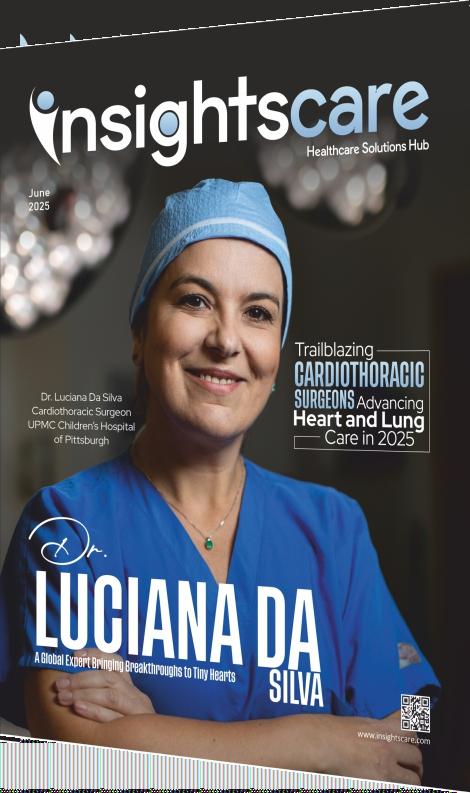
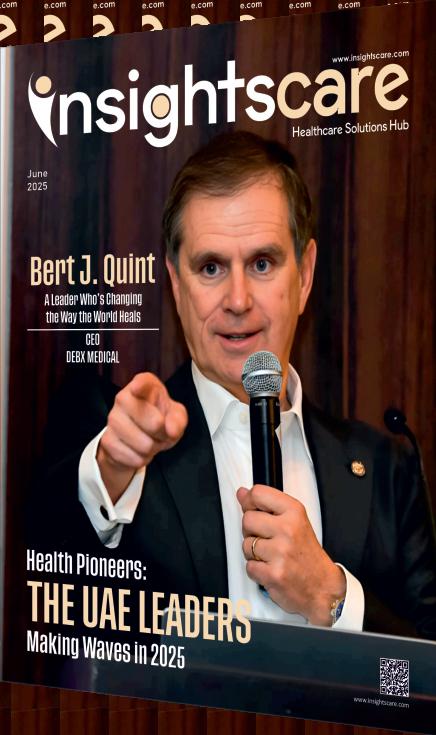
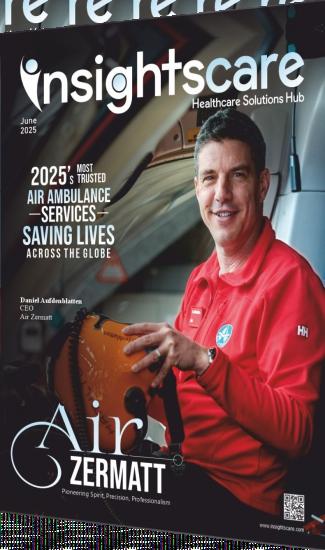
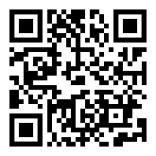
www.insightscaremagazine.com

In the fast-changing healthcare environment of today, volatility is the new norm Economic fluctuations, regulatory changes, technological changes, and uncertain patient needs make the environment complex for healthcare leaders. But in the midst of uncertainty, opportunity emerges. Effective healthcare leaders foster innovation through adaptability, collaboration, technology, and patientcenteredsolutions.
This article discusses how such leaders manage volatile marketstoproducetransformativeresults.
EmbracingAdaptabilityasaCoreCompetency
Healthcareleaderssurviveinunstablemarketsbydeveloping flexibility Healthcareisunlikeotherindustriesinthatitmust dealwithdemographicpressurefromagingpopulations,the rising costs of delivery, and global health emergencies. Successful leaders are those who see change as opportunity, notthreat.
Agile leaders develop agile cultures within their organizations.Theyallowteamsthepermissiontotestandfailfastand improve.Thisimpliesthedecentralizationof
decision-making, which allows the front-line employees to propose solutions based on real-time information. As an example, the innovation center at Mayo Clinic allows employees, regardless of their position, to share their ideas andleadstothedevelopmentofsuchinnovationsasdiagnostic capabilities based on the usage of AI Emphasizing flexibility as one of the priorities, leaders ensure that their organizationscanresistshocksinthemarket.
Healthcare innovation hardly occurs in a vacuum. Unstable markets require intersector collaboration hospitals, technology firms, insurers, and governments Effective leaders establish partnerships to consolidate resources, distributerisk,andspeedupinnovation.Agoodcaseinpoint is how pharmaceutical giants and biotech start-ups collaborated in the creation of COVID-19 vaccines. Pfizer's collaboration with BioNTech brought together the former's scale of manufacture and the latter's mRNA competence, producingavaccineinrecordtime.
Cross-industry collaboration is also seen in data sharing. Champions who support interoperable systems facilitate smooth data exchange, enhancing patient outcomes. For example, programs such as the U.S. Department of Health's interoperabilityregulations have compelled organizations to connect electronic health records (EHRs). Champions at organizations such as Kaiser Permanente have used the systems to eliminate duplicative tests, saving billions of dollars a year. By creating collaboration, champions extend theirinfluenceinuncertainmarkets.
Technologyisahallmarkofhealthcareinnovation.Successfulleadersoperatinginturbulentmarketsleveragetechnologiessuchasartificialintelligence(AI),machinelearning,and roboticstoautomateprocessesandimprovecare.
However, technology has to be adopted with strategic foresight.Accessibilityshouldbecounteredwithinnovation to ensure underserved communities can get solutions.As an example, telemedicine-enabled mobile health clinics have assisted in expanding access in rural areas During the turbulent economies, leaders are interested in scalable technologies which will bring long-term value and avoid stretching the budget too far. They promote sustainable innovation,byanchoringtechnologytoorganizationalgoals.
Atthecenterofhealthcareinnovationisthepatient.Successful leaders of turbulent markets engineer solutions that respond to patient needs amidst financial and regulatory limitations. Patient-centric innovation is about listening to comments, monitoring outcomes, and adapting services. In turbulent markets, patient trust is essential. Leaders who openly disclose risks and benefits of novel therapies foster loyalty.
Uncertain markets tend to introduce regulatory doubt, but effective leaders convert limitations into drivers of innovation.Thevalue-basedcaresystemoftheAffordableCareAct, for instance, challenged hospitals to shift their focus from volume to outcomes. Leaders at companies such as Intermountain Healthcare met this challenge by creating predictive analytics that lowered readmissions at a cost of $200 million a year Fiscal issues similarly require outsidethe-box solutions During economic recession, leaders reallocateresourcesbyemployingleanstrategies.
Continuous learning creates a workforce that can learn to adapt.Leadersinunstablemarketsspendonongoinglearning so that their employees are always ahead of the curve. Initiatives such as Johns Hopkins Medicine's innovation fellowshipseducateemployeesinfuture-orientedareassuch as genomics and digital health. Such programs create an innovator pipeline that fuels long-term success. Further, leaders promote psychological safety, whereby employees areencouragedtoexperiment.
Leadinginnovationinunstablehealthcaremarketsisnoeasy accomplishment.Effectiveleadersusetheblendofadaptability, collaboration, technology, and patient centrality to steer through uncertainty. They transform difficulties into probabilities, using partnerships and data to provide revolutionarycare.Bypromotingagility,adoptingtechnology,and putting patients first, such leaders survive not just volatility butthrivethroughitandredefinethefutureofhealthcare.As markets keep evolving, their capacity to innovate will continue to be the bedrock of advancement, leading to improvedresultsforpatientsandorganizations.
-Pearl Shaw





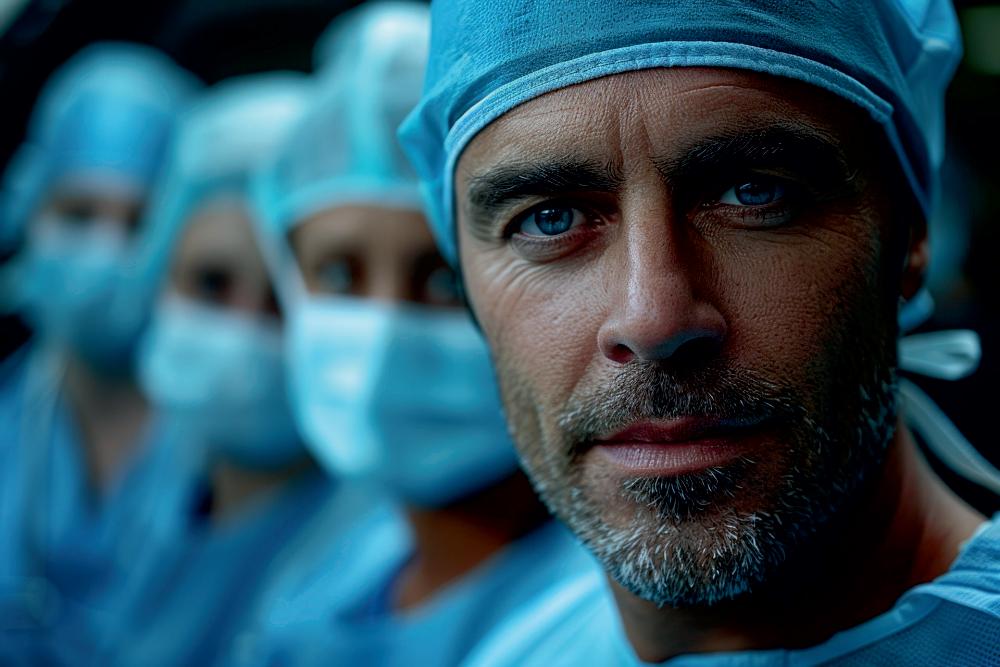

The health care sector is facing a fundamental shift,
fueled by economic constraints, technology innovation, and changing patient expectations. Health care leadersareconfrontingchallengesneverseenbefore,ranging from dealing with increases in cost and regulation to coping with workforce shortages and implementing digital innovations Resilient leadership has been identified as a key competencyforgettingthroughthischanginglandscape.By building adaptability, emotional intelligence, and strategic vision, health care leaders are able to not just weather but thriveinthisrapidlychanginglandscape.
This article delves into the secrets of resilient leadership in healthcare's changing economy, providing actionable insightsforleaderstopropelsustainablesuccess.
A number of converging factors determine the healthcare economy Hospital budgets are strained by increased operating costs aided by inflation and ineffective supply chains. The changes in policy, such as the value-based care requirements,requiretheshifttowardsthenewmodelsbased ontheoutcomesinsteadofthevolume.
Simultaneously, patients expect individualized, convenient care, which is enabled by digital platforms and telehealth technology
Such pressures require leaders to go beyond the ordinary management strategies. Resilient leadership is an approach that focuses on the flexibility, emotional resilience, and the orientationtowardstheestablishmentoftrustandinnovation within the teams. By embracing such principles, leaders can guide their organizations through uncertainty whilst maintainingafirmbeliefinqualitycareandfiscalresponsibility
Adaptabilityisthekeytoresilientleadership.Inanunpredictableeconomy,leadersmustmakedecisionsintheunknown, balancing short-term demands with long-term goals. Decision-making based on data can facilitate leaders in makingtheirorganizationsmoreadaptable.Trackingpatient results, financial performance, and operational performance through analytics helps leaders identify trends and adjust strategiesinadvance.Leaderswhoareflexibleandadaptable instill flexibility and adaptability among their employees, enabling them to embrace uncertainty as an opportunity for improvement.
Healthcareispeople-oriented,andeffectiveleadersrecognize the importance of emotional intelligence (EQ) to manage teams.HighEQleadershavetheabilitytoplacethemselvesin theiremployees'shoes,understandtheirpressures,andbuild trust.Withburnoutratesnearing50%fordoctorsandnurses in recent studies, leaders must participate in employee wellnesstohaveanoptimalworkforce.Effectiveleadersuse open communication and active listening to encourage a feelingofbelonging.Byshowingempathyandtakingcareof team needs, leaders build a culture where employees are encouragedtodeliverqualitycareinspiteofpressure.
Strongleadersreconcileimmediateissueswithafirmfuture vision. In the changing economy of healthcare, that means accepting innovation in pursuit of greater efficiency and patient outcomes. Technologies like artificial intelligence, remote monitoring, and electronic health records are transforming care delivery. Leaders will have to decide which innovations align with their organization's goals and invest accordingly Innovation does require good thought management,however
Leaders must define the "why" of new projects, gaining the commitmentofstaffandloweringresistance.
Financialpressuresrequireleaderstohaveexcellentfinancial skills. Resilient leaders also champion value-based care, linking financial incentives to patient outcomes. Through investments in preventive care and chronic disease management, organizations can mitigate the cost of costly hospital readmissions. Open budgeting and ongoing financial review guarantee accountability and enable leaders to anticipate economic changes, positioning their organizations for sustainabilityoverthelongterm.
Healthcare leaders are working in a multiplex ecosystem of stakeholders, led by patients, employees, regulators, and payers Resilient leadership necessitates forming close partnerships to fuse interests and propel system transformation. Leaders also need to promote policies that facilitate healthcare affordability and equity Negotiating with policymakerstoguiderulesorgainfundingformentalhealth care,forinstance,canimprovecommunityhealthoutcomes.
Multidimensional approach is essential to the resilient healthcare leadership in the shifting economy Leaders must bestrategic,emotionallyintelligentandflexiblebuttheymust be financially literate and cooperative. Through developing thesequalities,theyareabletomanagethefinancialobstacles, motivatetheirstaff,andprovidegoodcare.
The path forward includes continuing education and a willingness to adapt Those who invest in investing in themselves through mentoring, training, or peer networks are best equipped to lead their organizations. Through the ongoing transformation of the healthcare economy,resilientleaderswillnotjustsurvivebutthriveand establish a future where quality care and economic viability existsidebyside.
-Natalie May
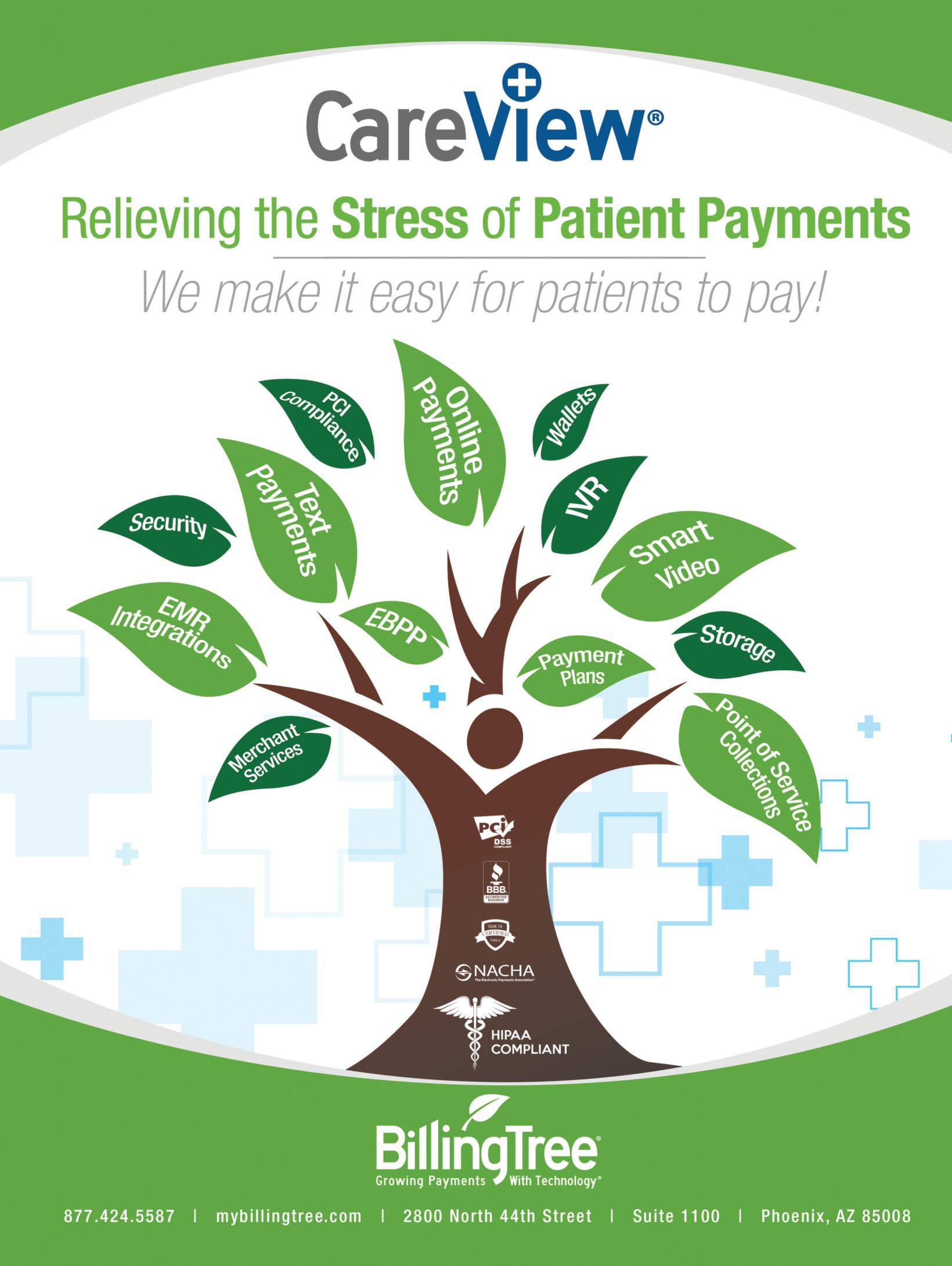



www.insightscaremagazine.com